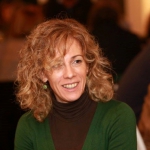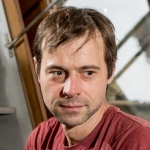Pre-conference workshop
Date: 22 July 2018 (Full day)
Lecturers: Telmo M. Bento dos Santos, Faculty of Sciences, University of Lisbon, PT
Programme
The workshop will cover both theory and practice on the study of high-grade metamorphic rocks, focusing on its two most common rock types: migmatites and granulites. The workshop will be divided in:
1 – High temperature metamorphism:
Basic notions and most common rock types
Petrography and geochemistry of granulites and migmatites
Genetic models and regional metamorphism
Importance of the study of high-temperature metamorphism
2 – THERMOCALC:
Introduction to thermodynamics and THERMOCALC.
Petrographic and mineral chemistry approach to THERMOCALC.
P-T modelling, analysis and discussion.
Price: Please see registration fee table. The price include light lunch, as well as morning and afternoon coffee breaks.
Minimum number of participants: 15
Pre-conference workshop
Date: 22nd July 2018, 9:00 – 17:00 h
Lecturers: Prof. Eduardo Ferreira da Silva (GeoBioTec Research Center, PT);Prof. Paula Marinho Reis (GeoBioTec Research Center, PT); Prof. Vojtech Ettler (Institute of Geochemistry, Mineralogy and Mineral Resources, Charles University, Faculty of Science, CZ)
Brief Summary:
Elements that affect health are widely found in nature and humans can easily come in contact with them through different exposure pathways. Therefore, investigation of human exposure to elements, either essential or harmful, in the soil, dust, water, and homegrown foodstuffs has been carried out to increase further the current knowledge on the impact of the environment on human health. Basically, human health risk assessment is all about linking exposure to health effects. However, the relationships between exposures and health effects are far from completely understood. The proposed short-course envisages providing some insights into the methodologies commonly employed to carry out a human health risk assessment study. Furthermore, it aims to discuss new methodological strategies that may be used in site-specific studies to increase knowledge on the complex relationships between exposure to trace elements and potential health effects.
Programme
1. Medical geology: some concepts
2. Biomonitoring as a measure of exposure: case studies
3. Bioavailability and bioaccessibility: case studies
4. Exposure and risk assessment (practical module)
5. The Unified BARGE Method: an in vitro test to estimate the oral bioaccessibility of trace elements (practical module)
Requirements: personal laptop
Price: Please see registration fee table. The price include light lunch, as well as morning and afternoon coffee breaks.
Minimum number of participants: 15
Short CV:
 Paula Marinho Reis is a researcher at the Universidade de Aveiro (UA). She graduated in Geological Engineering at the UA in 1990 and obtained her PhD degree in Geosciences at the same university in 1997. Since obtaining her PhD degree Paula Marinho Reis published 6 book chapters, more than 50 papers in national and international journals and about 120 conference proceedings, and is Coordinating Editor of the journal Environmental Geochemistry and Health. Paula Marinho Reis has been participating and coordinating several national and international R&D projects and is a member of the Bioaccessibility Research Group of Europe (BARGE), a research consortium in the subject of the bioavailability and bioaccessibility of environmental contaminants in the solid-phase. Her main areas of scientific activity are data analysis, geostatistics, spatial modelling, environmental geochemistry and health, and urban geochemistry.
Paula Marinho Reis is a researcher at the Universidade de Aveiro (UA). She graduated in Geological Engineering at the UA in 1990 and obtained her PhD degree in Geosciences at the same university in 1997. Since obtaining her PhD degree Paula Marinho Reis published 6 book chapters, more than 50 papers in national and international journals and about 120 conference proceedings, and is Coordinating Editor of the journal Environmental Geochemistry and Health. Paula Marinho Reis has been participating and coordinating several national and international R&D projects and is a member of the Bioaccessibility Research Group of Europe (BARGE), a research consortium in the subject of the bioavailability and bioaccessibility of environmental contaminants in the solid-phase. Her main areas of scientific activity are data analysis, geostatistics, spatial modelling, environmental geochemistry and health, and urban geochemistry.
 Vojtech Ettler is a professor in applied geology at Charles University in Prague, Czech Republic. He graduated in 1997 at the same university and received his PhD at the University of Orléans (France) in 2000. His research focuses on environmental mineralogy and geochemistry with a special emphasis on solid-state speciation of inorganic contaminants in various geomaterials (wastes, dusts, soils) and application of metal isotopes for tracing the sources of pollution. Since 15 years he has been involved in numerous research projects dealing with dispersion of contaminants in abandoned and active mining districts of sub-Saharan Africa. He published more than 100 papers in international journals. He serves as Associate Editor of Applied Geochemistry.
Vojtech Ettler is a professor in applied geology at Charles University in Prague, Czech Republic. He graduated in 1997 at the same university and received his PhD at the University of Orléans (France) in 2000. His research focuses on environmental mineralogy and geochemistry with a special emphasis on solid-state speciation of inorganic contaminants in various geomaterials (wastes, dusts, soils) and application of metal isotopes for tracing the sources of pollution. Since 15 years he has been involved in numerous research projects dealing with dispersion of contaminants in abandoned and active mining districts of sub-Saharan Africa. He published more than 100 papers in international journals. He serves as Associate Editor of Applied Geochemistry.
Pre-conference workshop
Date: 21nd July 2018, 9:00 – 17:00 h
Lecturers: Prof. Maria do Rosário Azevedo and Prof. José Francisco Santos, GeoBioTec Research Center, University of Aveiro
Programme
The course provides an overview of theoretical and practical aspects of the application of radiogenic isotopes to geochronology and isotope geochemistry. The relevance of each topic for earth sciences will be illustrated with case studies. The course will consist of four seminar-based sessions:
1) Basics of isotope systematics and long-lived radioactive decay systems. Age dating of rocks and minerals using the Rb-Sr and Sm-Nd isochron methods.
2) The U-Th-Pb isotope system. U-Pb Concordia diagram. U-Pb zircon dating: principles and applications.
3) Radiogenic Isotopes as source tracers. Sr and Nd isotope evolution of Earth’s mantle and crust with geological time. Tracking igneous processes through variations in Sr-Nd isotopic compositions.
4) Radiogenic isotopes and provenance studies. Some examples of the application of radiogenic isotopes in environmental sciences, archaeology, food and beverage industry and forensic sciences.
Price: Please see registration fee table. The price include light lunch, as well as morning and afternoon coffee breaks.
Minimum number of participants: 15
Short CV:
Maria do Rosário Azevedo, Associate Professor at the Department of Geosciences of the University of Aveiro. PhD in Geochemistry, Imperial College, London. Member of the Lithospheric Evolution Group of the Research Center GeoBioTec. Member of the Scientific Board of the Laboratory of Isotope Geology of the University of Aveiro. Coordinator / participant in several national and international research projects. Author-co-author of more than 150 publications, including 25 papers in ISI international journals, 8 book chapters and 130 published abstracts in proceedings of scientific meetings. Supervisor or joint supervisor of four concluded PhD theses and 20 MSc theses. Main research interests: petrology and geochemistry of granitic rocks; isotope geology; migmatites and granulites from high-grade metamorphic belts; geodynamic evolution of orogenic belts.
José Francisco Santos is an Assistant Professor of Geosciences at the University of Aveiro (UA). He received his BSc and PhD degrees in geology from the universities of Lisbon and Aveiro, respectively. His main research interests are radiogenic isotope geology, geochemistry, igneous and metamorphic petrology, provenance studies, geology of Iberia and geology of Iran. He has been involved in the teams of eight research projects funded by Fundação para a Ciência e a Tecnologia (Portugal), one funded by UNESCO/IUGS and one funded by CNRS (France). He was the principal investigator of the Petrochron project (PTDC/CTE-GIX/112561/2009. José Santos has participated in different committees at both department and university levels. In the Geobiotec research unit, he is the Head of the Lithospheric Evolution group and of the Laboratory of Isotope Geology. Since June 1st 2015, José Santos became also Head of the Department of Geosciences of the UA, a position in which he has already served in the period 2006-2008.
He has participated as author or co-author in more than 200 publications (articles, book chapters, communications to scientific conferences), 47 corresponding to articles in journals indexed in SCOPUS. He has also reviewed articles for several scientific journals, namely Precambrian Research (Elsevier), Lithos (Elsevier), Ore Geology Reviews (Elsevier), Tectonophysics (Elsevier), Heliyon (Elsevier), Geochemical Journal (Geochemical Society of Japan), Arabian Journal of Geosciences (Springer), GeoResJ (Elsevier), International Geology Review (Taylor & Francis), Comunicações Geológicas (LNEG, Portugal).


